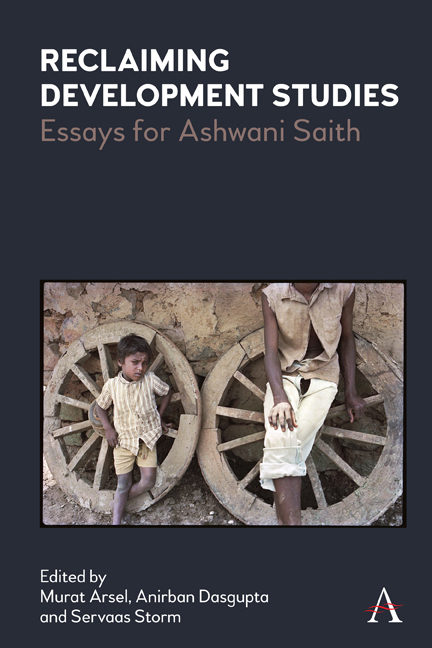Chapter Two - The Rural Non-farm Economy in India Revisited: From Rural Industrialization to Rural Entrepreneurs
Published online by Cambridge University Press: 23 February 2022
Summary
Introduction
Close on the heels of the heady growth of the Green Revolution, Asian economies were confronted with a developmental challenge of a different kind. As intensive agriculture of the type promoted by the Green Revolution revealed limited capacity for labour absorption, the question of non-agricultural rural employment loomed large. At the same time, manufacturing industry was not generating employment opportunities to absorb this surplus labour from agriculture. It was in the backdrop of these developments that one of the first iterations of Ashwani Saith's seminal body of work on rural non-farm employment and rural industrialization was published.
Saith (1992, 2001) argued that policymakers in Asian economies had come to view rural industrialization (variously defined) as a way of absorbing this surplus labour. It also presented a way of addressing questions of rural development without resorting to redistributive land reforms and was in keeping with the laissez faire spirit of the structural adjustment programmes. However, Saith cautioned against the proliferation of low-level labouring jobs in the name of rural industrialization. His comparative analysis across Asian countries also pointed to the salience of historical conditions in shaping the pattern of rural industrialization and the futility of seeking a one-size-fits-all model for success. The key issue for Saith was ‘to identify and establish the economic conditions and institutional environment within which specific policy interventions might enable this sector to perform its ascribed developmental and policy-alleviating functions’ (1992, 1) in a given national political economy context.
Nearly three decades on, the question of limited labour absorption by productive sectors is more aggravated than ever. In India, which this chapter is concerned with, an extended period of jobless growth under liberalization combined with increasing rural outmigration has kept the question of rural non-farm employment alive. However, we will suggest that Saith's (2001) argument that rural industrialization has policy purchase in India no longer holds true under the current political dispensation. Discourses and policies of development reflect a new political commitment to individualized entrepreneurialism under minimal state intervention, even as the need for an explicitly employment-focused development strategy seems more pressing than ever. This chapter will describe this emerging dialectic and consider the legacy of Saith's work in this context.
- Type
- Chapter
- Information
- Reclaiming Development StudiesEssays for Ashwani Saith, pp. 19 - 38Publisher: Anthem PressPrint publication year: 2021



